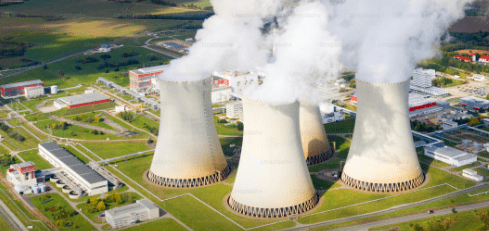The Scottish and UK governments are buzzing with hopes that Grangemouth’s closing refinery will quickly offer new jobs to its workers. But what’s really in store for these people? Here’s a look at the situation in simple terms.
A Big Change is Coming
Grangemouth is home to a big petrochemical plant that’s closing its doors next year. This means around 400 people will lose their jobs. The local unions are not happy. They say the government didn’t plan well for this “just transition”—a term that means moving from one kind of work to another smoothly. According to them, thousands of other workers could also be in trouble.

But don’t worry, there’s some good news too. Scottish Energy Secretary Gillian Martin is optimistic. She told BBC Scotland’s Sunday Show that she’s sure the workers with special skills will find new jobs. She believes that these workers, who are really good at what they do, will be snapped up by other companies. UK Energy Minister Michael Shanks also mentioned that some companies are already interested in hiring these skilled workers.
A New Investment Plan
When the news about the refinery’s closure came out, both the Scottish and UK governments announced a huge £100 million investment plan. This money is supposed to help improve the Grangemouth area and create new opportunities. However, Martin couldn’t say exactly how many jobs this investment might save.
She thinks many companies are looking at the skills of the workers and making job offers. The workers know how to make things like biofuels and hydrogen, and they also manage import terminals. Martin is confident they will find new work because of their valuable skills.
A Potential Buyer and Future Plans
There’s also talk about a possible buyer for the refinery. Michelle Thomson, a local MSP from the SNP, mentioned she’s working with someone who might buy the refinery. She asked the First Minister, John Swinney, to meet with her to discuss this, but the details are confidential.
First Minister Swinney agreed to meet Thomson, but Gillian Martin is a bit skeptical. She pointed out that Petroineos, the company running the refinery, had already announced last year that they planned to shut it down and turn it into an import terminal. Martin is unsure about this potential buyer, as she doesn’t have much information about who they are or what their plans might be.
Unions’ Concerns and History
Unions have suggested that the refinery should stay open longer to give time for a green alternative to be set up. They also criticize the politicians for not planning well for the closure and for not transitioning away from fossil fuels effectively.
The Grangemouth refinery was first opened by BP back in 1924 and expanded into making petrochemicals in the 1950s. It supplies aviation fuel for airports across Scotland and is a key source of petrol and diesel for many areas. Ineos bought the site in 2005, and it’s now run by a joint venture between Ineos and PetroChina.

Looking Ahead
So, what happens next? The hope is that with the government’s investment and the interest from other companies, the workers will find new opportunities. It’s a big change, but the skilled workers at Grangemouth have a lot to offer.
The Scottish government and local officials are working hard to make sure that the closure of the refinery doesn’t mean the end of good jobs for the people who’ve worked there. The potential buyer and new investments are steps in the right direction, even if there are still many unknowns.
As Grangemouth prepares for this major transition, the focus will be on creating a smooth shift for the workers and finding new uses for the site. With a bit of luck, the changes ahead will lead to new beginnings for the community and its workers.








